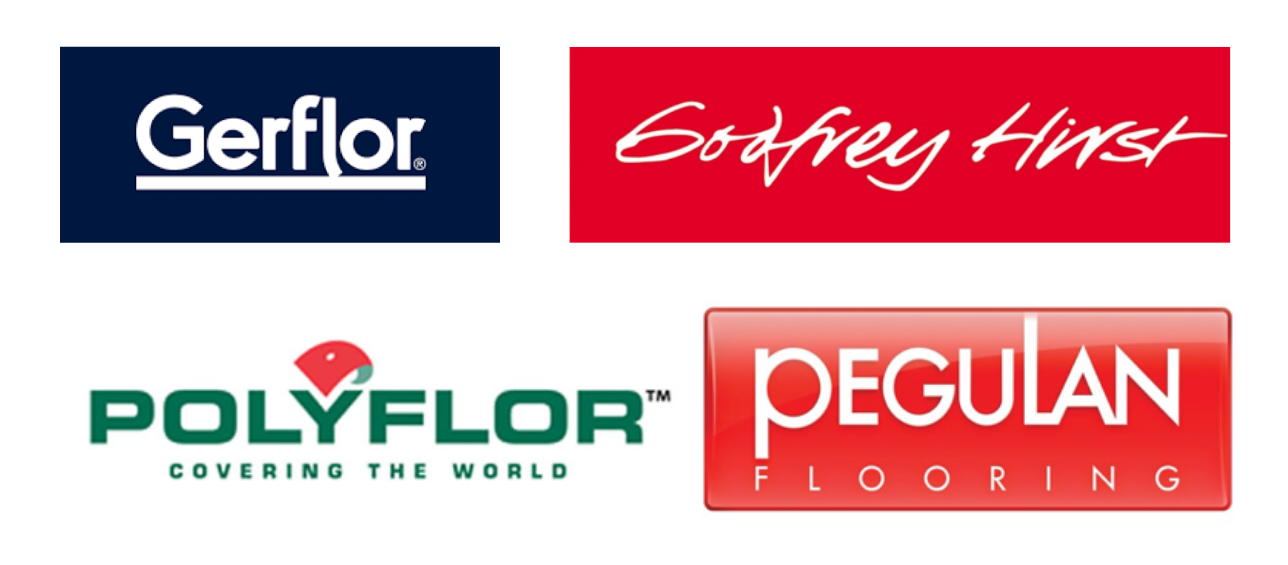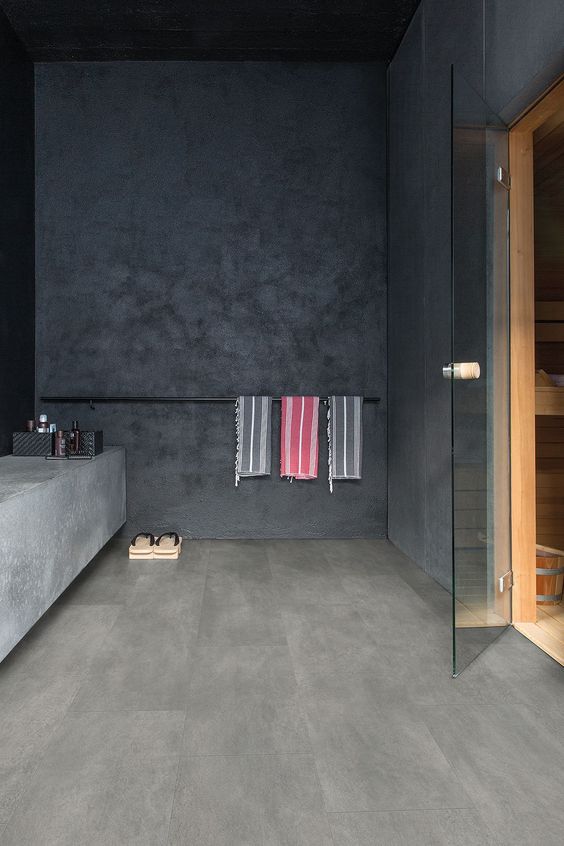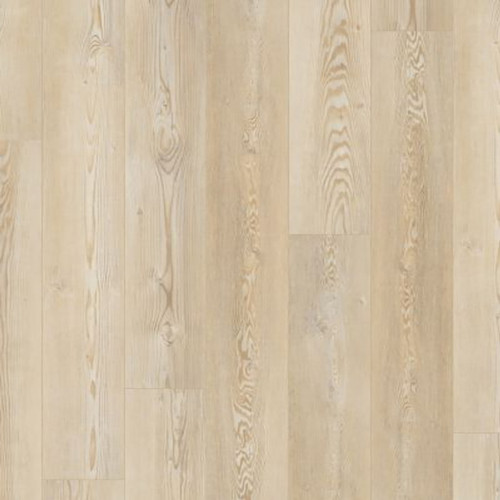Vinyl Flooring Sydney
Since its inception in the 1930s, vinyl flooring has come a long way. This flooring material is now one of the most popular choices for both residential and commercial properties.
Are you considering vinyl flooring for your home or business? You’ve come to the right place.
When it comes to vinyl, most people think of their grandma’s old linoleum kitchen or simple hospital waiting room.
But in fact, technological advancements have made vinyl one of the flooring industries most stylish and versatile products that bears little resemblance to the old lino of the past.
Vinyl is produced in the form of vinyl planks, vinyl tiles or sheet vinyl and are made to replicate the looks of modern timber, stone or classic simplicity. Vinyl is best known for its water-resistant and hard-wearing qualities, but it is also ultra-low maintenance, quiet and soft underfoot and is designed to be scuff and scratch resistant.
Brands We Stock:

We stock a wide variety of brands including Gerflor, Polyflor, Pegulan Flooring, Godfrey Hirst and more.
Eastwood Carpets and Flooring is Sydney’s leading vinyl flooring specialist. And because we want you to make an informed decision for your space, we’ve come up with your ultimate guide to vinyl flooring.
What is Vinyl Flooring?
Vinyl flooring is a manufactured or artificial material made from ethylene and chlorine. It was initially produced in the 1930s as an alternative to linoleum, which was a popular flooring material at the time.
Early versions were not very durable and were prone to cracking and yellowing with age. However, thanks to technological advancements, vinyl flooring has improved significantly in terms of durability and resistance to wear and tear.
Modern vinyl flooring is now more durable, easy to maintain, and comes in a variety of styles and colours. Luxury vinyl flooring, for example, is a favourite among homeowners and high-end commercial properties.
You will find many vinyl flooring types on the market today:
- Sheet vinyl: This type comes in large rolls. Vinyl sheet flooring is easy to install and can be cut to fit any space. It’s also one of the most affordable types of vinyl flooring.Sheet vinyl comes in a variety of designs, including wood-look, stone-look, and geometric patterns. It’s also available in a variety of colours.
- Luxury vinyl tile: This type consists of smaller tiles that are installed like regular floor tiles. LVT is a bit more expensive than sheet vinyl but it is also more durable and easier to repair. Like sheet vinyl, vinyl tiles can be used to create custom patterns and designs. It is also a popular choice for those who want to make a statement with their flooring.
- Vinyl plank flooring: This type is becoming increasingly popular because it looks like real wood planks, but is much more durable and easier to maintain than the real thing. In fact, luxury vinyl plank flooring (LVP) is the highest quality and most realistic-looking type of vinyl plank flooring on the market.It is available in a variety of colors and finishes, including realistic-looking wood floors. Popular choices include oak, maple, and cherry. Vinyl planks and luxury vinyl planks are also available in a variety of widths and lengths. Sustainable wood-plastic composites are sometimes used to create wood-look vinyl flooring. These composites are made from recycled wood flour filler and plastic. Interior waterproof flooring can also be made from bamboo, which is a sustainable material.
The Benefits of Vinyl Flooring
There are many reasons why vinyl flooring is such a popular choice for both home and business owners. Here are some of the most notable advantages:
Affordability
The cost of vinyl flooring is very reasonable, especially when compared to other types of flooring such as wood and stone. It is also very easy to install, which can save you money on labour costs.
However, keep in mind that the price of vinyl flooring can vary depending on the quality and style. For instance, luxury vinyl tile (LVT) is usually more expensive than sheet vinyl.
Durability
Vinyl flooring is very durable and can withstand a lot of wear and tear. It is also water-resistant, which makes it ideal for rooms such as bathrooms and kitchens.
The lifespan of vinyl flooring depends on the quality of the material. High-quality vinyl flooring can last up to 20 years, while lower-quality vinyl may only last 10 years.
Easy to Maintain
One great thing about vinyl flooring is that it is low maintenance. You can simply sweep or vacuum the floor to remove dirt and dust. If there are any spills, you can easily wipe them up with a damp cloth.
More stubborn stains can be removed with a mild cleaning solution. Harsh chemicals or cleaners, such as bleach, should be avoided as they can damage the flooring.
Aesthetically Pleasing
Vinyl flooring comes in a variety of colors and styles. This means that you can find a vinyl floor that matches the décor of your home or business. Whether you want a classic wood-look or a bold geometric pattern, there is a wide variety of vinyl flooring options for you.
Tips for Installing Vinyl Flooring
If you’re planning on installing vinyl flooring in your home or business, or having vinyl flooring installed, there are a few things you should keep in mind.
Choose the right type of vinyl flooring.
There are many different types of vinyl on the market, so make sure you choose one that is right for your needs. If your home or business has a lot of foot traffic, for instance, you will need a more durable type of vinyl. It will also depend on where you plan to install the vinyl.
For instance, LVT is a good choice for wet areas such as kitchens and bathrooms.
Make sure the surface is smooth and level.
Before you install vinyl flooring, you need to make sure the surface is smooth and level. If the surface is not level, the vinyl will not lay flat and may start to peel up.
You can use a self-leveling compound to level out the surface. Just make sure the surface is completely dry before you install the vinyl. If you’re working with specialists or other professional vinyl flooring installers, they will be able to take care of this for you.
Clean the surface before you install the vinyl.
It’s important to clean the surface before you install vinyl flooring. This will remove any dirt, dust, or other debris that could prevent the vinyl from sticking.
You can use a vacuum or broom to clean the surface. If there are any grease stains, you can remove them with a degreaser. With a professional vinyl installer, make sure the surface is cleaned to industry standards prior to installation.
Install a vapour or moisture barrier.
A vapour barrier is a thin sheet of material that helps to prevent moisture from damaging the vinyl flooring. You can find vapour barriers at most home improvement stores. Just make sure you choose one that is compatible with vinyl flooring.
Installing a vapour barrier is particularly important if you’re installing vinyl in a wet area such as a bathroom. Work with a professional vinyl installer to make sure the vapour barrier is installed correctly.
Acclimate the vinyl.
Before you install vinyl flooring, you need to acclimate it to the room. This means letting it sit in the room for 24 hours so that it can adjust to the temperature and humidity.
If you do not acclimate the vinyl, it may shrink or expand when exposed to the room’s conditions, which could cause the flooring to buckle or peel up. With the help of a professional vinyl installer, you can make sure the vinyl is properly acclimated before installation.
Use the proper adhesive.
When installing vinyl flooring, you need to make sure you use the proper adhesive. The type of adhesive you use will depend on the type of vinyl and the surface you’re installing it on.
For example, if you’re installing LVT on a concrete floor, you would need to use a different adhesive than if you were installing sheet vinyl on a plywood subfloor. Ask a professional vinyl installer for tips on how to use the proper adhesive for your project.
Install trim and moulding.
After you install vinyl flooring, you will need to install trim and moulding. This will help to create a finished look and prevent the vinyl from peeling up.
You can find trim and moulding at most home improvement stores. Choose a style that compliments the vinyl flooring.
Sydney’s Best Vinyl Flooring Specialist – Eastwood Carpets and Flooring
You can never go wrong with Eastwood Carpets and Flooring for your vinyl flooring needs in Sydney. With years of tried and tested experience, our trained professionals have mastered the art of flooring.
Whether you are looking for a new space or just wanting to renovate your existing one, we can provide you with the perfect vinyl flooring solution that will make your home look amazing and stylish.
Don’t trust just any vinyl flooring installer – trust the experts at Eastwood Carpets and Flooring!
Here’s what we promise with every vinyl flooring installation:
A perfect fit
We take the time to measure your space and ensure that your vinyl flooring is cut to the perfect size. This way, you won’t have any gaps or spaces between your vinyl and the wall.
A clean installation
We understand that installing vinyl flooring can be messy. That’s why we take care to clean up after ourselves and leave your space looking better than when we arrived.
A stress-free experience
Installing vinyl flooring should be a stress-free experience. That’s why we take care of everything, from measuring and cutting the vinyl to trimming and moulding. We’ll even move your furniture for you!
A cost-effective solution
Vinyl flooring is a cost-effective way to update your space. And since it is more affordable than other types of flooring, you may be tempted to do it yourself. But we don’t recommend it!
Installing vinyl flooring is not a do-it-yourself project. It requires special tools and experience to get it done right. And if it’s not installed properly, it can buck or peel up.
Save yourself the time and hassle (and hidden costs) of a DIY vinyl flooring installation. Trust the experts at Eastwood Carpets and Flooring to get the job done right, the first time.
Vinyl Flooring Repairs and Maintenance – Eastwood Carpets and Flooring Is Here to Help!
Even the best vinyl flooring can suffer from wear and tear over time. That’s why we offer vinyl flooring repairs and maintenance services.
We can fix any vinyl flooring issue, from peeling and buckling to holes and scratches. We’ll even clean and polish your vinyl floors to restore their original shine!
If you’re having problems with your vinyl flooring, don’t hesitate to contact Eastwood Carpets and Flooring. We’ll assess the damage and give you a free quote for the repairs.
Frequently Asked Questions (FAQs)
What makes vinyl flooring different from other types of flooring?
Vinyl Flooring vs. Laminate Flooring:
Vinyl and laminate flooring are two popular types of flooring that share some similarities. But there are also some key differences. Vinyl flooring is made from PVC, while laminate flooring is made from HDF or MDF. This makes vinyl more durable and waterproof than laminate.
Vinyl Flooring vs. Hardwood Flooring:
Hardwood flooring is made from, well, hardwoods! Vinyl flooring is made from PVC. Compared to vinyl flooring, timber flooring is more susceptible to scratches and dents.
Vinyl Flooring vs. Tile Flooring:
Tile flooring is one of the most popular types of flooring for bathrooms and kitchens. But vinyl flooring is a great alternative to tile, especially in rooms where water is present. That’s because vinyl is waterproof and more resistant to humidity than tile.
What are the dos and don’ts with regards to caring for my new vinyl floor?
Here are some helpful tips for caring for your new vinyl floor:
Do:
- Sweep or vacuum your floor regularly to remove dirt and debris.
- Wipe up spills immediately.
- Place mats at entrances to collect dirt and debris.
- Use only cleaners that are specifically designed for vinyl floors.
Don’t:
- Do not use harsh chemicals or cleaners on your vinyl floor.
- Do not use a beater bar when vacuuming.
- Do not wash your floor with water or steam mop.
- Do not place heavy furniture on your vinyl floor.
Why is my vinyl floor peeling up?
Your vinyl floor may be peeling up for a number of reasons:
- The humidity in your home is too high.
- The adhesive wasn’t applied properly.
- The subfloor wasn’t prepared properly.
- The vinyl floor was not installed properly.
How long will my vinyl floor last?
With proper care and maintenance, your vinyl floor can last up to 20 years!
How do I know if I need to repair or replace my vinyl floor?
If your vinyl floor is damaged beyond repair, then you will need to replace it. But if the damage is minor, then a vinyl floor repair may be all that you need.
If you’re not sure whether you need to repair or replace your vinyl floor, contact Eastwood Carpets and Flooring. We’ll be happy to assess the damage and give you our professional opinion.
Types Of Vinyl For Your Home:
Luxury Vinyl Plank Or Tile:
For your home, luxury vinyl planks and tiles are the perfect flooring solution for those high-traffic areas like living areas, hallways and even wet areas like your kitchen or laundry. they have an inbuilt polyurethane wear layer that families with children and pets will find very hard to scratch or scuff. Unlike ceramic tils or hardwood floors, vinyl planks and tiles are softer and quieter due to how to products are produced. There is a seemingly endless variety of modern timber or stone looks that will suit any design aesthetic without compromising durability or style.
Sheet Vinyl:
Sheet vinyl comes in all the styles and patterns that luxury vinyl planks and tiles do. It is mainly used to modernise smaller areas like kitchen and laundries. It can be a cheaper alternative then planks or tiles but has the disadvantage of not being as resistant to scratches or scuffs and is susceptible to tearing by pets with long claws or dragging heavy furniture.
Installation And Floor Prep:
Installation:
Luxury vinyl planks, tiles and sheet vinyl can either be glued down to the subfloor with product specific adhesives or loose laid without adhesive. It depends on what product you choose and the manufacturers installation recommendation. Glued down products are more durable as they are less likely to move and expand or contract. Vinyl planks and tiles are usually installed in a straight configuration with either a random, ashlar or brick pattern. For a more elegant and classier look, vinyl planks can also be installed in the herringbone style.
Floor Preparation:
Most vinyl products require some degree of floor preparation in one way or another. Vinyl needs a generally level, smooth and solid sub-floor for correct installation and to be covered under the manufacturer’s warranties. How smooth or rough your sub-floor is will determine the level of floor prep needed and will ultimately affect the final aesthetic finish.
Common concrete sub-floor preparations:
- Grind with a hand grinder or stand-up machine to remove any imperfections like bumps or excess concrete lumps.
- Patch holes in the sub-floor with Ardit floor repairer.
- Skim coat sub-floor with Ardit feather finish screed to make smooth.
- If the sub-floor is really rough and undulated, we can top the sub-floor with Ardit self-leveling flow-coat from 1mm to 10mm high to make smooth.
Common timber sub-floor preparations:
- Sand down sub-floor raised edges or joints to make smooth.
- Supply and install Masonite or plywood boards over existing sub-floor. These products get stapled or glued down and make for smooth finish ready for installation.
- New advances in Ardit self-levelling flow-coat technology now mean we can smooth out timber sub-floors with concrete screed just like a concrete sub-floor.






